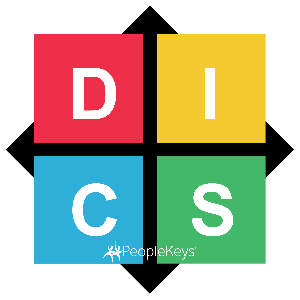- SHOP BY PRODUCT
- DISC TRAINING & CERTIFICATION TOOLS
- DISC RESOURCES
- BLOG
- SHOP BY PRODUCT
- DISC TRAINING & CERTIFICATION TOOLS
- DISC RESOURCES
- BLOG
- ALL ITEMS



Are you living the life you want to be living?
That’s a question that more and more people are searching to answer. In many cases, people are turning to professional life coaches to help themselves find their path in life.
Following your dreams isn’t so easy when you’re not sure what those dreams really are. A professional life coach can help you find the clarity you need to move forward in life and find success, fulfillment, and happiness.
There are many people who are interested in the idea of a life coach but aren’t sure what a life coach would really do for them. To give a little bit of clarity on this growing profession, here are the answers to some of the most frequently asked questions about life coaching.
1) What is a life coach?
Think of the role of a coach in athletics. In sports, the coach guides the athletes to success, offers strategies for winning the game, and pushes them to be the best players they can be. A life coach has a similar role. A life coach encourages, empowers, and motivates clients to reach their personal and professional goals. Life coaching helps people understand their strengths and improve their weaknesses and provides an objective perspective on the obstacles standing in the way of success. In short, life coaches guide you from where you are to where you want to be.
2) How is life coaching different from counseling?
Counseling typically investigates the causes and symptoms of mental health problems. Life coaches are not trained to diagnose medical issues or treat health-related problems. Coaching mainly focuses on personal development and self-improvement.
3) Why do you need a life coach? Couldn’t you just ask a friend for advice?
A life coach is more like an advocate than a friend. Unlike a friend, they may push and challenge you to do things you wouldn’t normally do. A life coach will hold you accountable for your actions and will be there to guide you, not soothe you. Life coaches aren’t there for you to “vent” to and won’t just tell you what you want to hear. They are there to provide an objective look at the obstacles standing in the way of your goals and will help you create and enact a specific plan to move forward. Also, unlike a friend, the relationship with a life coach is a one-way street: it is exclusively focused on you.
4) What kinds of issues will a life coach help you with?
In short, a life coach can help you work through any issue you struggle with. Success at work, staying in shape, improving your love life, standing up for yourself, working through writer’s block, becoming a better leader, fighting procrastination—Any sort of positive change you can imagine, a life coach can help you realize.
5) What happens in a typical life coaching session?
The content of a coaching session varies based on the coach and the client. But we can give you a sample overview of the approach that many coaches take.
Life coaches typically start out using a series of questions and exercises designed to get to know you and the way you approach the world. Many coaches find it helpful to use a DISC test in these initial meetings, as DISC tests can give a very accurate measurement of personality, drive, behavior, and motivation. Once your coach has a clear idea of who you are, what drives you, and what your ambitions are, they create an action plan to help you reach your goals.
The pace of your coaching program will depend on your personality. If you are a person who is resistant to change (like a type S personality), the plan your coach will develop will be a series of small, manageable steps toward a larger goal. If you tend not to have the patience to wait for results and like the changes to come more quickly (like a D style personality), your coach will be more aggressive with the program.
After the initial meeting, content of a typical coaching session often includes:
6) Is life coaching expensive?
The cost of life coaching varies with the length and frequency of the sessions, the type of client, and the experience of the coach. The average individual coaching session costs between $100 to $300 an hour. Corporate coaching costs more—between $1000 to $5000 a month—because these clients often require more time-intensive interactions, on-site programs, computerized assessments, group presentations, and so forth.
7) How many life coaching sessions will you need to commit to?
The number of coaching sessions you schedule is completely up to you. Some people have sessions with a life coach once a week, while others only meet with a coach every few months. Once you have explained your goals to your coach, the two of you will work together to come up with a plan that will be efficient and effective. Life coaches can work around your lifestyle, your needs, and your timetable. Many life coaches are also willing to operate over the phone or over the internet, making the process as simple for the client as possible.
8) What is the best way to choose a life coach?
Look for certified life coaches. This is the best way to tell the difference between people that call themselves “life coaches” and professionals that have been properly trained to act as life coaches.
Also, be sure to talk with a potential coach before scheduling a session. Rapport is often the most important factor in a client/coach relationship. If you don’t feel comfortable with a coach, look elsewhere.
9) How can you become a life coach?
Life Coaching is a fast-growing profession, one that many people are anxious to join. If this is a career path that interests you, PeopleKeys offers several different programs of study, all of which will provide the training and certification needed to develop a successful life coaching practice. Our Certified Behavioral Life Coach program is a self-study course that can be completed on your own timetable from home.
For more information on our Certified Behavioral Life Coach Package, click below:

©1985- PeopleKeys, Inc. All Rights Reserved
WORKING DAYS/HOURS
Mon - Fri / 8:30AM - 5:00PM EST
